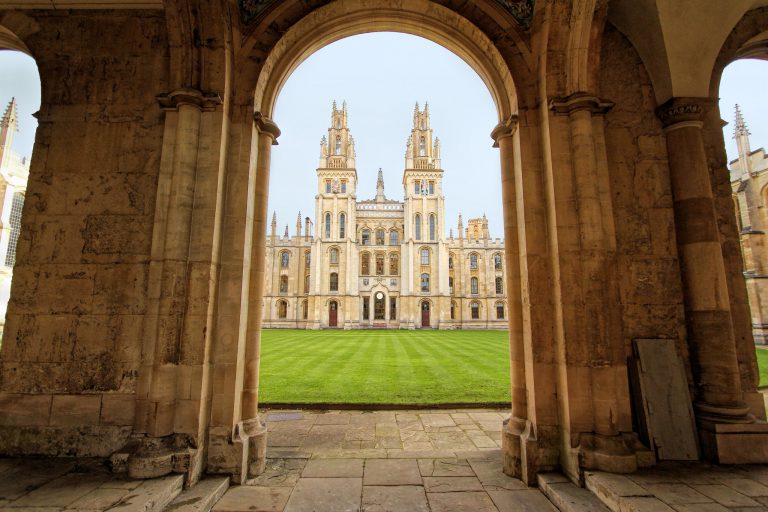
Results from a University and College Union (UCU) study have sparked outrage in the UK after revealing that University Vice-Chancellors have revelled in a 10 percent pay rise this past year alone.
Figures show the average salary for UK University bosses now stands at £272,000 a year, seven times the average wage provided for general University staff. While Chancellors enjoyed a 14 percent pay rise over the past five years, lecturers made do with an increase of just five percent.
The study also revealed that on average, UK University bosses spend £9,000 a year on air travel, with a significant majority purchased alongside first class benefits.
Vice-chancellors at UK universities receive average salary packages of £272,000 a year, the University and… https://t.co/0hUwz7WvaW
— BBC Politics (@BBCPolitics) February 11, 2016
“While some continue to enjoy inflation-busting pay hikes and all the trimmings of first class flights and luxury hotels, staff pay continues to be held down,” said UCU’s general secretary, Sally Hunt.
As the UK’s higher education ‘funding crisis’ continues to raise concern among prominent sector professionals, University bosses enjoy a hefty raise to what were already six-figure salaries.
While last year’s figures identified 18 Vice-Chancellors who raised their pay by more than 10 percent, this year’s study shows that a total 27 bosses have hiked their pay by this same amount.
Average university VC’s salary rises 14% in five years: vice-chancellor at Oxford University paid £462,000 https://t.co/JYhffpWD5b
— Eleanor Warren (@elmwarren) February 11, 2016
The highest single earner was the former Vice-Chancellor of Oxford University, who received a pay packet worth £462,000, including various benefits and pension payments, up from the £454,000 he took home the previous year.
He claims this six-figure salary reflects the “vast research output” and “institutional complexity” of what is considered one of the world’s most prestigious Universities.
The biggest spender, when it came to air travel, forked out £41,891 last year to jet around the globe. Figures show the average University boss spends £8,560 a year on flights, with 49.6 percent purchased as business or first class tickets.
The study also revealed that UK Vice-Chancellors spend an average of £2,990 a year on hotel rooms, with the highest hotel spender blowing £19,865 on resort accommodation.
In terms of property, the average market sale value of residential accommodation provided for heads of Universities was £1,159,825. The most valuable property is occupied by the Vice-Chancellor of Cambridge University, and is valued at £4.5million.
UCU asked a total of 159 universities to participate in the study, submitting Freedom of Information (FoI) requests to gather data regarding annual rates of pay. In total, 18 Universities (11 percent) failed to respond to the requests, while just 35 (22 percent) institutions submitted uncut minutes from their most recent remuneration committee meeting, in which the Vice-Chancellor’s salary would have been decided.
Mail: It’s no wonder universities want to curb freedom of information laws! https://t.co/X3Q11Yiaw9 #VCpayandperks
— UCU (@ucu) February 11, 2016
Three of the Universities asked used exemptions to refuse to answer all questions, while a further four submitted answers to just one of the questions supplied, prompting UCU to call for greater “transparency” within the UK’s HE sector.
“The time has finally come for a frank and open discussion about pay and transparency in higher education,” says Hunt. “The huge disparities in the levels of pay and pay rises at the top expose the arbitrary nature of senior pay in our universities.”
But the Freedom of Information Act is now under threat from the government, who claim it is “too costly to administer” and have ordered a review, following a number of public sector scandals the act has recently exposed. The UCU report is released as ministers discuss whether or not to exempt UK Universities from FoI legislation.
@Phil_Baty @ucu Absolutely right. UCU should forget so-called perks (what CEO flies economy?) and focus on the real issue of huge salary gap
— Sue Shepherd (@sueshepherdHE) February 11, 2016
“It is deeply worrying that ministers are considering relaxing FoI rules for Universities, when they are the one measure we have to hold them to account,” adds Hunt.
“We will continue to campaign for a proper register of pay and perks at the top of our Universities. This information must be made readily available and no University should be allowed to get away with not responding to an FoI request.”
Image via Shutterstock.







